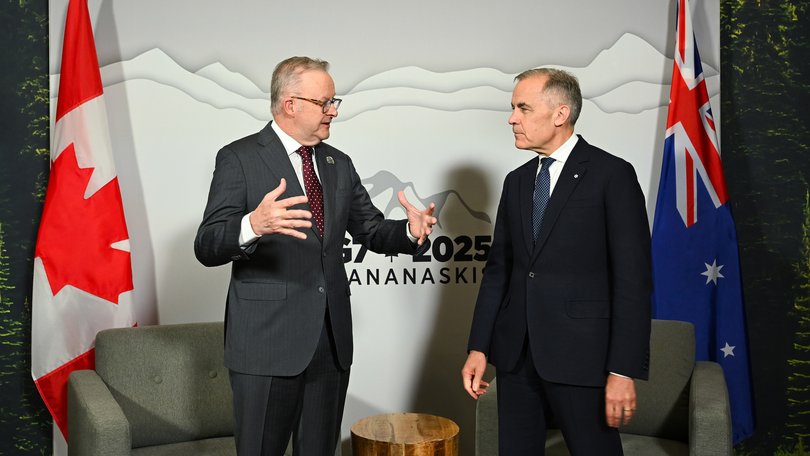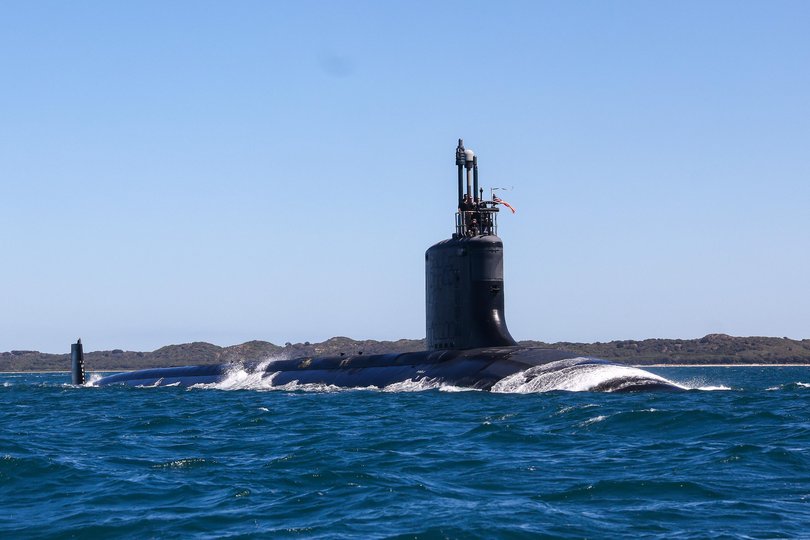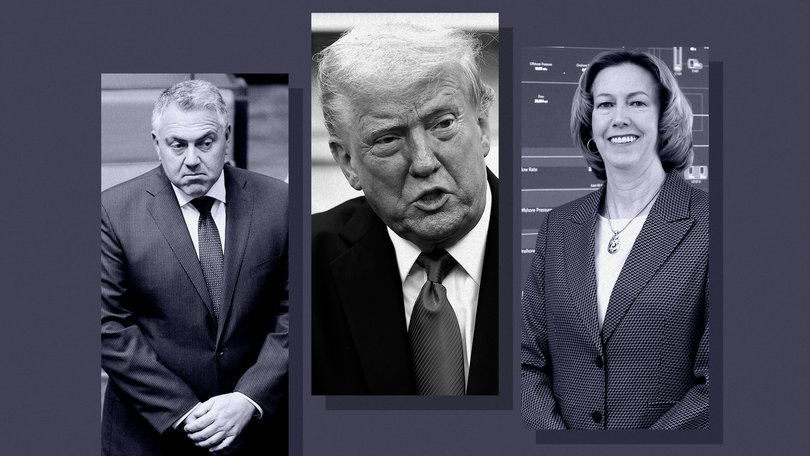Anthony Albanese gears up for high-stakes Donald Trump meeting as he expands relations with Canada, EU
Anthony Albanese will use the next few days ahead of his highly anticipated first meeting with US President Donald Trump strengthening defence, trade and security relationships with other allies.

Anthony Albanese will use the next few days ahead of his highly anticipated first meeting with US President Donald Trump strengthening defence, trade and security relationships with other allies, as world leaders attempt to navigate significant global uncertainty.
And former ambassador to the US Joe Hockey has urged the Prime Minister to disarm Mr Trump, instead of making demands, at this week’s Group of 7 summit in Canada where the escalating conflict in the Middle East is set to overshadow talks.
The leaders of the world’s biggest economies are not expected to issue the traditional joint communique in a bid to avoid conflict with Mr Trump - and a repeat of the infamous 2018 summit where the President withdrew his signature hours after it was signed.
Sign up to The Nightly's newsletters.
Get the first look at the digital newspaper, curated daily stories and breaking headlines delivered to your inbox.
By continuing you agree to our Terms and Privacy Policy.As a non-participating outreach partner at the summit, Prime Minister Albanese will use his time in Kananaskis this week instead working the summit’s sidelines, with a series of bilateral meetings scheduled over the next few days.
His first on Sunday (local time) was with Canadian Prime Minister Mark Carney, where the pair discussed deepening defence engagement through Ottawa’s proposed procurement of an Australian radar system and Canada potentially signing up to AUKUS Pillar II, which centres around advanced capability.
“I think that Australia always has a case for maximising our defence and security relationships in what is an uncertain world,” Mr Albanese said.
“I think what’s clear is that in the uncertain world, what people are looking for is certainty in trusted relationships. Australia and Canada are just such partners.”
President Trump’s ruthless isolationism and defence spending demands have put a cloud over whether the US and Australia remain such partners. Against such uncertainty, Mr Albanese has been emboldened to look for other partnerships, prompting him to take up an offer from Europe to potentially become security and defence partners.
The PM will meet with EU Commissioner Ursula von der Leyen and European Council President Antonio Costa on Wednesday, where the trio will begin formal talks on a new security and defence partnership.
Such a pact could involve military exercises and cooperation in foreign interference, cybersecurity, defence industries and critical technologies - like partnerships already struck between the EU and Japan, South Korea and the UK.
“I’ll enter those discussions constructively but we look to cooperate to strengthen Australia’s capacity,” Mr Albanese said on Monday.
The stalled EU-Australia free trade agreement is also set to be discussed, but Mr Albanese on Monday downplayed prospects of a final deal being struck in Canada.
Mr Albanese will also meet with leaders of Japan, South Korea, Germany, France, the UK, and NATO.
But the most anticipated of his meetings will be one with Mr Trump on Tuesday (local time), where there is pressure on Mr Albanese to put forward Australia’s case for a tariff carve out and secure commitments from the President about AUKUS.

The PM wouldn’t pre-empt the meeting, not among the list of bilaterals confirmed by the White House upon the President’s arrival in Canada, but said he would not shy away from making Australia’s case to Mr Trump.
“The discussion with President Trump I expect will be very much about Australia and the United States and our relations. That will be very much the focus,” Mr Albanese said, saying he would view the meeting as successful if he could put forward Australia’s position.
The future of the trilateral submarine deal was cast into doubt this month after the Trump administration ordered a review into the program, and whether it’s in line with the President’s “America First” program.
“What AUKUS offers the United States is, firstly, the support that we’re providing for their industrial capacity. Secondly, the increased capacity to have their subs in the water as well because of the maintenance facilities that will take place at Henderson,” Mr Albanese said.
“In addition to that, there’s all the support that we give to the United States and with our defence relationships... including the presence of US forces in Darwin.”
Charm and disarm
Back at home, former ambassador to the US Joe Hockey said Mr Albanese should try a different approach to the meeting, suggesting that instead of making demands or requests to the President, he disarm him and ask: “what can I do to help?”

“Everyone that goes into the Oval Office goes asking for something. Go in there to Donald Trump, disarm him and say, What can I do to help? Because we’re aligned in our interests. We want freedom, we want democracy, we want a safe world. What can we do to help?,” Mr Hockey told News Corp’s Defending Australia summit.
If Mr Trump does, as is anticipated, make the case directly to Mr Albanese that Australia should rapidly ramp up its defence spending, Mr Hockey suggested the PM put AUKUS at the centre of such a discussion.
“I would say to him: ‘We’re the only country in the world that has been side by side with the United States in every major conflict … and we want to do it again’.”
“(Trump) is transactional. He wants to be able to walk out of there and say: ‘I’ve got a deal’. He’s entirely predictable … he is the most open and transparent political leader I’ve ever seen.”
On the AUKUS review, which Mr Hockey says was borne out of anxiety about the US’ lagging junior submarine production line, the former ambassador said Australia “needs to tell them that we will deliver and help them to reach their goals”.
Meanwhile, former national security adviser to Mr Trump, HR McMaster, said against a backdrop of Xi Jinping “preparing the Chinese people for war”, the President would likely stick with the AUKUS pact.
The retired lieutenant general, who clashed with Mr Trump during his first term, said the way the President’s “America First” review was playing out was “disappointing” and risks eroding key partnerships, but he believed there would ultimately be a “continuation” of the AUKUS relationship.
“I think there’s a way to pursue those objectives of sharing responsibility and defence – and to address some of this concerted trade – without disrupting the relationship and especially eroding some of the trust that is necessary in the trans-Atlantic relationship, within the NATO alliance and in the relationship with the EU,” he told the summit.
At the same event, Defence Minister Richard Marles said the US-Australia alliance “remains the cornerstone of our strategic policy and our foreign policy”.
Nevertheless, in such a fraught geopolitical environment and with President Trump’s unpalatable approach, Australia cannot afford to rely solely in our oldest security partner.

